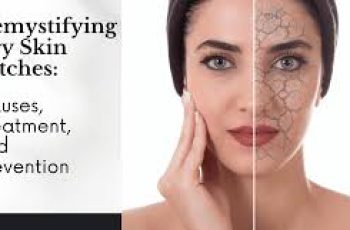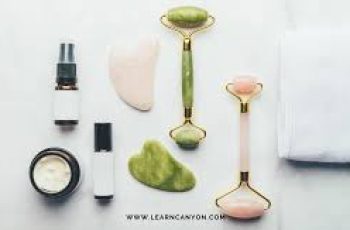
Here’s the Truth About Using Baking Soda as a DIY Acne Treatment
We’d be willing to bet that you have at least one box of baking soda currently stashed in the kitchen. Whether it’s in the pantry waiting to be mixed into your go-to chocolate chip cookie recipe or under the sink ready to be used as part of a make-your-own cleaner, there’s no denying that baking soda wins in the versatility department. That being said, contrary to what you may have heard, there’s one place where you shouldn’t use baking soda without abandon: The face.
Baking soda has been anecdotally used as a DIY mask or spot treatment for acne. However, according to top dermatologists Marnie Nussbaum, MD, FAAD, and Annie Gonalez, MD, this ingredient may do more harm than good when added to your skincare routine. To get our facts straight, we asked the experts for their thoughts on using baking soda to fight acne.
Ahead, find how to use baking soda safely, as well as its benefits and potential side effects when used on the skin.
Meet the Experts
Marnie Nussbaum, MD, FAAD, is a New York City-based board-certified dermatologist specializing in non-invasive aesthetic rejuvenation.
Annie Gonzalez, MD, is a board-certified dermatologist and founder of Glösense Dermatology & Aesthetics in Miami.
What Is Baking Soda?
Also known as sodium bicarbonate, baking soda is a chemical compound with alkalinizing properties and is technically classified as a salt, explains Nussbaum. The alkalinizing part is super important when it comes to using baking soda in skincare and for acne, but per that same point, it’s why baking soda helps neutralize acidic substances, both internally and externally, points out Gonzalez.
Baking Soda
Type of Ingredient: Exfoliant
Potential Benefits: Exfoliates, offers anti-inflammatory properties, and may help balance out the pH for those with oilier skin.
Who Should Use It: Only those who are in a pinch and don’t have access to products that use ingredients specifically formulated to fight acne, such as salicylic acid and benzoyl peroxide, cautions Nussbaum. Generally speaking, it’s also a better option for oilier skin types, adds Gonzalez, but it can be problematic even then.
How Often Can You Use It: No more than once per week.
Works Well With: Mix it only with water to create a spot treatment.
Don’t Use With: Because baking soda may be very drying, don’t use it with other potentially drying skincare ingredients, such as retinoids or acids.
There’s no denying that baking soda can play a role in many at-home beauty treatments, not to mention that it’s an insanely affordable ingredient for these purposes. It’s a potential physical exfoliant; it can step in for dry shampoo in a pinch and make for a great foot soak. It can easily be turned into toothpaste and is a star ingredient in many natural deodorants (both DIY recipes and ready-made options). You get the picture. But where things start to get a little dicey, and you need to proceed with caution is when using baking soda on your face and for acne-fighting purposes.
Benefits of Baking Soda for Acne
There are some; there wouldn’t be tons of articles singing its praises as a natural zit-zapping solution if there weren’t. Take a look at some notable benefits below:
Exfoliates: Baking soda’s slightly gritty texture means it has an exfoliating effect, says Nussbaum. Exfoliating is one way to help keep pores from becoming clogged and prevent blackheads, whiteheads, and red pimples from forming.
Offers anti-inflammatory properties: According to Gonzalez, baking soda is anti-inflammatory. It’s why it’s often found in many over-the-counter topical products meant to soothe minor skin irritations such as bug bites and rashes, she points out. And, by default, this is why it could be beneficial for quelling red, inflamed breakouts, she adds.
Can help balance out the pH for those with oilier skin: For context, let’s start with a quick high school chemistry class refresher: The pH scale runs from 0 to 14, with 7 being neutral. Anything below 7 is acidic, and anything above is alkaline. Our skin is typically acidic, with a pH between 4 and 6.1 “This is a healthy level that maintains moisture while also protecting it from bacteria and pollution,” explains Gonzalez. However, “If your skin is more acidic than average, it can lead to an excess production of sebum (your skin’s natural oils), which can clog pores and cause acne,” adds Nussbaum. In that case, the alkaline nature of baking soda can help balance the skin and bring it back to a healthier pH, according to Nussbaum.
Potential Side Effects
Because baking soda is so alkaline—it has a pH of about 9—it can easily disrupt your skin’s natural pH levels by over-stripping the natural oils, resulting in dry, irritated, and inflamed skin, cautions Nussbaum. Messing with your skin’s pH may also lead to premature wrinkles and, ultimately, even exacerbate existing acne, warns Gonzalez.
In short, baking soda does offer the aforementioned benefits, but there’s a super fine line between reaping said benefits and quickly veering into irritated skin territory. That’s why both doctors we spoke with warn against using it as part of a DIY acne-fighting routine.
How to Use It
If you still want to take baking soda for a test run, remember that, first and foremost, the oilier your skin is, the less likely you are to run into issues. In other words, if your complexion is dry and sensitive to begin with, this is definitely not the ingredient for you. Secondly, small amounts used infrequently are safest. Nussbaum suggests mixing approximately two teaspoons of baking soda with enough water to form a paste-like consistency and applying it as a targeted spot treatment onto blemishes only. To clarify, don’t slather it across your entire complexion as an all-over face mask. Leave it on for five to 10 minutes before gently rinsing with tepid water—and do this no more than once per week, Nussbaum says. Since there’s also the potential for it to dry out your skin, be extra diligent about moisturizing and SPF usage.
If you experience any adverse side effects, such as redness, dryness, irritation, or flaking, after using baking soda as a spot treatment, seek treatment from a board-certified dermatologist.
The Final Takeaway
Ultimately, baking soda—a chemical compound with alkalinizing properties—may be best left for kitchen or household cleaning uses. It can easily disrupt your skin’s natural pH levels by over-stripping the natural oils, resulting in dry, irritated, and inflamed skin. Before trying out baking soda as a water-mixed, paste-like spot treatment, remember that the oilier your skin is, the less likely you are to encounter any issues. If you experience any adverse effects, such as redness, dryness, irritation, or flaking, from using baking soda as a spot treatment, consult a board-certified dermatologist.


